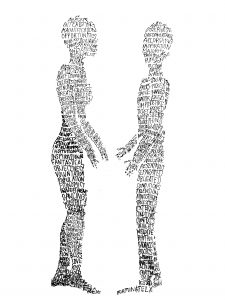Is This the Unlikeliest Friendship in America?
She’s a gay rights activist. He’s an evangelical Christian. They tell us why “impossible” friendships can be our most valuable.
See the transcript of this conversation here.
A Therapist Teaches Us How to Connect
A crash course in reaching out to those who feel furthest away.
See the transcript of this interview here.
Why Millennials Are Moving Into Convents With Nuns
Even as young people eschew religion, some are forming unexpected bonds with sisters of faith through a shared commitment to social justice.
See the transcript of this interview here.
What Canada Can Teach America about Racial Reconciliation
Both countries have a shameful history of oppression. One of them is facing up to it.
See the transcript of this video here.
United by Activism, Separated by Decades
A young BLM activist and a veteran of the Civil Rights Movement connect across a lifetime of struggle.
See the transcript of this conversation here.
LGBTQ+ and Religious People, Face to Face
Bonus video! In this moving short film, two groups that have long struggled to connect finally let their guards down.
